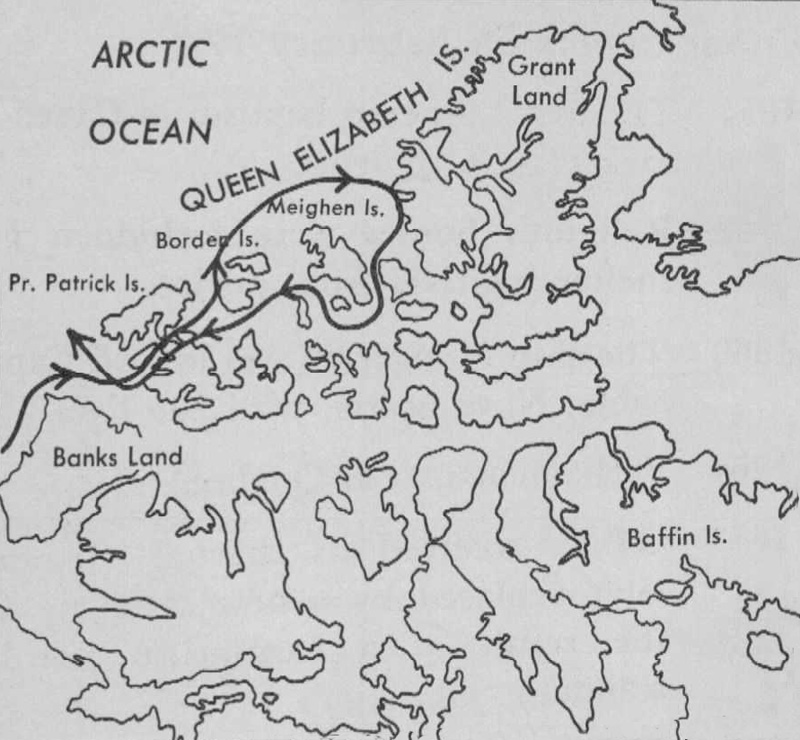
HISTORICAL EVENTS THAT TOOK PLACE ON THIS DAY IN CANADA
20 February

Stefansson's expedition 1916-17
Arctic charms Explorer
This is an opportunity to outline the story of Vilhjamur Stefansson, one of the greatest Arctic explorers, who was born at Arnes, Manitoba, in 1879. His parents were among the Icelanders who settled in Canada so successfully, although the Stefanssons moved to the United States after Vilhjamur was born. He was educated there and spent three years at Harvard.
It was on February 20, 1915, that Stefansson set out on an expedition that took him along the coast of Banks Land to Alfred Point, and then to Prince Patrick Island. He and his assistants found land that had never been seen before and claimed it for Canada. This expedition was only one of a number of achievements Stefansson recorded between 1913 and 1918 when he was employed by the Canadian government to explore the Arctic. The five-year expedition above the Arctic Circle was the longest on record and Stefansson and his men lived like Eskimos, depending on hunting for their food.
During his ten winters and thirteen summers in the Arctic, he claimed many islands for Canada, including Borden, Brock, Meighen, and Lougheed.
Stefansson's great claim to fame, however, was his insistence that the Arctic was habitable by white men, and even hospitable. He wrote a book called The Friendly Arctic which was heartily criticized by other explorers including Amundsen, the first man to reach the South Pole.
He not only exploded many myths about the Arctic, but claimed that it was capable of commercial development. He forecast the use of air transport and submarines for getting over and under icy wastes. His argument that there was mineral wealth in the Arctic was confirmed not long ago by the discovery of the world's richest deposit of iron ore on Baffin Island.
OTHER NOTABLE EVENTS ON THIS DAY IN CANADIAN HISTORY
20 February
-1667 La Salle settled in Montreal.
-1808 Joseph Willcocks was arrested for contempt of the Assembly.
-1836 Governor Sir Francis Bond Head invited Reformers to join the Upper Canada Council.
-1865 The Legislative Council of Canada voted 45-15 for Confederation.
-1894 The Supreme Court of Canada refused the appeal of Manitoba Roman Catholics concerning the abolition of separate schools.
-1915 Field Marshal Sir John French inspected the 1st Canadian Division on the western front.
-1950 The Princess Patricia Canadian Light Infantry was in action in Korea.
-1961 Prime Minister Diefenbaker conferred with President Kennedy at Washington.
-1966 The Lieutenant-Governor of Quebec, Paul Comtois, died in a spectacular fire which destroyed the historic residence of Bois de Coulonge.